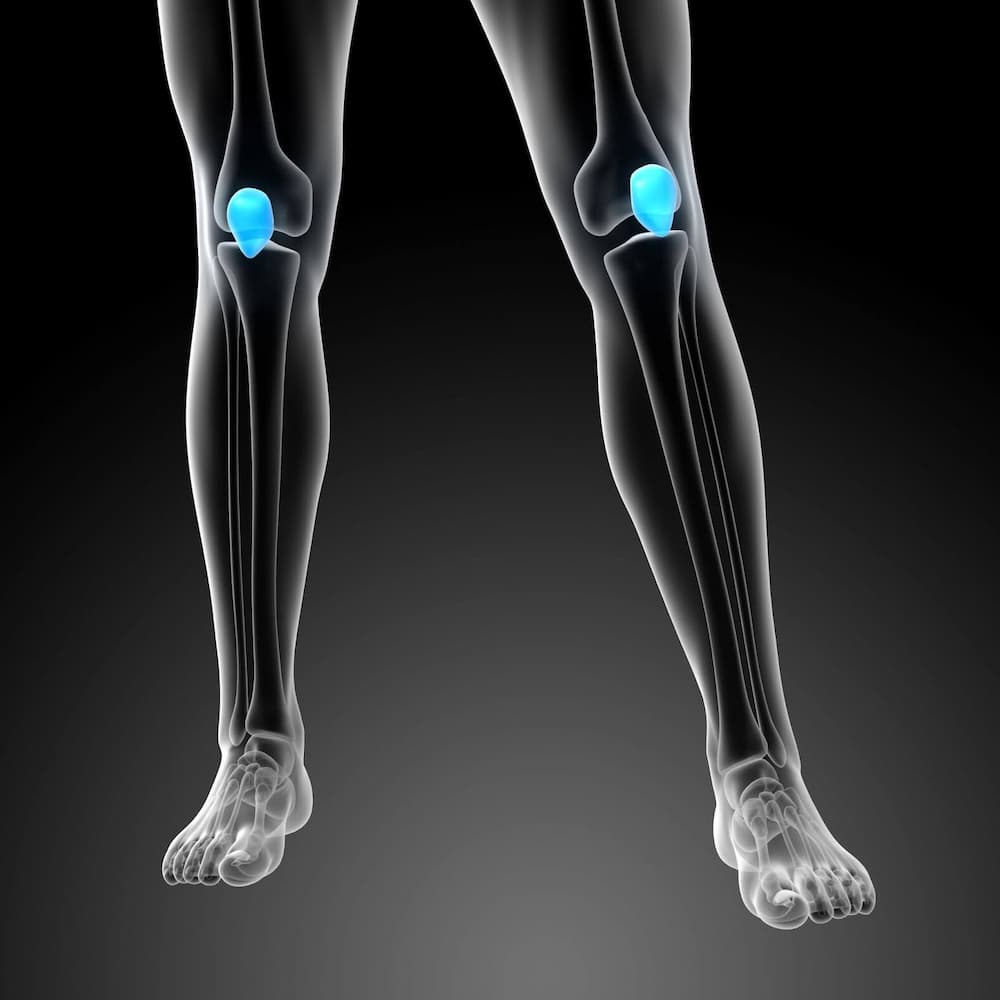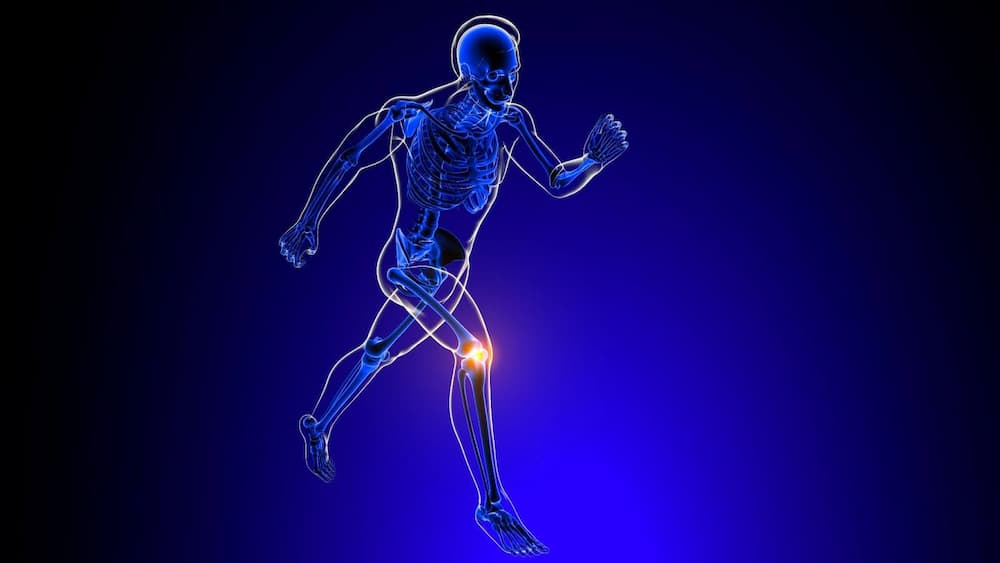According to a study published in the EClinicalMedicine journal, the global prevalence of knee osteoarthritis was 16.0% in individuals aged 15 and over, and 22.9% in individuals aged 40 and over. It can range from mild discomfort to debilitating agony. The older we get, the higher the odds of having knee problems.
While it is possible to get some relief, no one wants to be constantly taking pills and worrying about the side effects for the rest of their lives. That’s where stem cells for joint regeneration come into play. To many, it seems that this might be an effective scientific way to deal with joint problems.
The Role of Stem Cell Research in Alleviating Knee Pain

Stem cell research for knees is designed to make use of our body’s internal repair system. According to 12 articles with 539 patients and 576 knees treated, stem cell therapy was a reliable, efficient, and safe treatment alternative for knee osteoarthritis.
By injecting processed stem cells into the defective area, the treatment can:
- Curb inflammation,
- Take away some of the pain,
- Delay the need for knee replacement surgery,
- Create new cartilage.
It can help patients walk with ease and get stronger joints.
Understanding Stem Cells and Knee Pain
Think of stem cells as a blank slate. They haven’t been “programmed” to do anything else in the body other than serve as building blocks for our blood, tissues, organs, and immune system. But when we extract and process them, we can use them to treat complex diseases.
This form of regenerative medicine is a multipotent therapy. Stem cells and knee cartilage research have many studies that demonstrate their remarkable potential.
To treat arthritis in the knee, doctors use mesenchymal stem cells (MSCs), their exosomes, and platelet-rich plasma (PRP). MSCs and PRP injections can repair the tissue, help the knee function better, and alleviate pain.
How Stem Cells Can Help Relieve Knee Pain
To use stem cells for knee pain, doctors inject the tissue with MSCs or PRP. These injections are capable of transforming cartilage cells and boosting growth factors. The therapy can help the tissue heal itself. It can be a viable option for people with impaired joint function and inflammation.
Potential Benefits of Stem Cell Therapy for Knees
People turn to stem cells for knee pain because they want to get their lives back on track. But, with the constant aches and stiffness, even the simplest things in life become harder to do. Like walking up and down the stairs, playing with kids, working in the garden, or doing the chores.
This therapy can have many advantages. It can:
- Replace dying or damaged cells
- Promote the natural rejuvenation process
- Restore mobility
- Enable better circulation
- Improve the quality of life
- Provide pain control
- Ease inflammation
The Procedure and Process
The therapy itself takes about 90 minutes. The doctor will need to harvest your healthy cells, spin them in a centrifuge, and then re-inject them into the defective knee.
What to Expect During a Stem Cell Injection for Knee Pain
The stem cell procedure for knee first has to extract the cells from the spinal cord or fat tissue. You will receive sedation, but it can still feel uncomfortable for a while until the effect goes away (shortly after the treatment). The re-injection, however, is a lot better. It hurts just a little bit, like any normal needle would.
The Steps Involved in the Stem Cell Procedure
Here is what you can expect with a stem cell procedure for knee:
- Extraction: doctors can use different sources to get stem cells. Like fat (adipose) tissue, bone marrow, or donor placenta or umbilical cord.
- Processing and isolation: this stage helps isolate only useful cells.
- Injection: stem cell knee injections go directly into the knee joint, or into the soft tissue around the joint.
- Regeneration: the body makes use of the beneficial stem cells and starts healing itself. For better results, we complement the treatment with metabolic therapy, kinesiotherapy and hardware treatment
- Recovery and follow-up: you take time to heal and rehabilitate. The doctor monitors the process.
Recovery and Post-Treatment Care for Knee Health
Your doctor will give you specific instructions to boost stem cell joint regeneration. For example, you will need to rest and avoid anti-inflammatory medications. You can start with physical therapy when your body can handle it.
Keep in mind that right after getting stem cell knee injections, your tissue may swell. This is to be expected because the body is still getting used to the substance. Slowly but surely, you can start doing light movements and work on your range of motion.
Get a free online consultation
Please, contact our medical advisor to discuss your health condition with a specialist in regenerative medicine. You can also leave your contact details for a callback. It is free and confidential.

MD, Endocrinologist, Pediatrician, regenerative medicine specialist, R&D director
Research and Innovation

Scientists are looking forward to the future of stem cell joint regeneration. This field combines genetic research and biotechnology to create one-of-a-kind treatments.
As the technology improves, we can develop novel stem cell-based products for joint diseases. Many patients are likely to rely on it to curb joint inflammation and manage cartilage cell growth. Constant progress may also make this therapy more accessible to the people.
Current Trends in Stem Cell Research for Knees
There is a lot of potential here. Based on recent reports, the global stem cell market is expected to be worth $31.6 billion by 2030. Even though the field seems promising, more large-scale studies are still needed to study the biomechanical and biological properties.
Experts need better standardization in therapy protocols — especially when it comes to the source of cells, their types, and dose. So, we can expect studies in the future to prioritize the long-term efficiency and safety of this procedure.
When it comes to the stem cell shots for knees cost, patients pay between €7,000 and €25,000 for the whole treatment. The prices vary depending on the number of injections, duration of treatment, side-treatments, and other factors.
Promising Developments and Clinical Trials
Major studies showed remarkable benefits from stem cell regeneration for knees.
In a clinical trial, 329 patients who used stem cells to treat their knee osteoarthritis (KOA) were impressed with the results. Their knees worked better, the pain subsided, and they could prevent a knee replacement.
Scientists studied stem cells and knee cartilage in another controlled trial. They evaluated 408 patients with KOA. The MSC therapy helped reduce the severity of the disease. After a 4-year follow-up, there were no serious side effects.
Exploring the Potential of Stem Cells in Knee Pain Management
Every advancement in the field of medicine can bring something new to the table.
This regenerative medicine can help manage different health problems, such as:
- Cartilage damage
- Tendonitis
- Ligament damage
- Osteoarthritis
- Meniscus tears
Stem cell transplant for knees is less invasive than other procedures, for instance, joint replacement surgery. It can significantly improve your cartilage quality and pain relief.
Is Stem Cell Therapy Right for Your Knee Pain?
You can get this therapy if the main treatment you are taking doesn’t give you the results you expect. You can get a stem cell for knee cartilage replacement if you have a dependency on pain medications. But it can also help those who may need to have their joints replaced in the future. A timely treatment with stem cells can significantly reduce the chances of your knees worsening, as well as save you from surgery in the future.
In therapy, MSCs can stimulate your body’s regenerative potential. It could prove useful for getting systemic and local anti-inflammatory benefits.
Candidates for Stem Cell Knee Pain Treatment
Want to know if you are a good candidate for stem cell injection for knee pain? Talk to our doctor.
Candidates usually have:
- Consulted with one of our doctors to determine if stem cell therapy is right for them
- Tried other conventional treatments, but didn’t find relief
If, for example, you are an active smoker, then your doctor might suggest you get stem cells from a donor who is a non-smoker. That’s because high nicotine doses can impair the treatment. So, it is best to stop smoking to keep the body in good health.
Consultation and Evaluation: Assessing Your Knee Health
For stem cell therapy, it’s best to consult with a specialist in regenerative medicine. They will take a closer look at your medical history. For example, how you injured the knee, what medications you used, and what diseases you have.
Tell them about the symptoms you’ve been having. How do these symptoms get in the way of your daily life? How long they last, or any swelling or stiffness you experience. After a physical examination, the doctor will check the overall state of the joint.
They can suggest further imaging studies if necessary.
Since stem cell therapy is experimental, the doctor can tell you about the potential outcomes and risks you can experience. They can also give you details on the stem cell therapy for knees cost. Since it is not standard care, insurance will likely not cover it.To find out more about the impact of stem cell therapy on arthritic pain, consult one of our professionals.
Contact us
Get a free online consultation to learn about the expected results of stem cell therapy for your case, what is the cost of the treatment, and its duration.

MD, Endocrinologist, Pediatrician, regenerative medicine specialist, R&D director
List of References
In Je Kim. (Sep 1, 2011). Prevalence of Knee Pain and Its Influence on Quality of Life and Physical Function in the Korean Elderly Population: A Community Based Cross-Sectional Study. Journal of Korean Medical Science. Retrieved from: https://www.ncbi.nlm.nih.gov/pmc/articles/PMC3172649/
Theofylaktos Kyriakidis. (Oct 7, 2023). Stem cells for the treatment of early to moderate osteoarthritis of the knee: a systematic review. Journal of Experimental Orthopaedics. Retrieved from: https://www.ncbi.nlm.nih.gov/pmc/articles/PMC10560289/
Robby Berman. (Nov 28, 2023). Stem cell transplants can be a safe treatment for knee osteoarthritis pain. Medical News Today. Retrieved from: https://www.medicalnewstoday.com/articles/stem-cell-transplants-can-be-a-safe-treatment-for-knee-osteoarthritis-pain
Hoi Leng Ip. (Sep 21, 2020). Regenerative Medicine for Knee Osteoarthritis – The Efficacy and Safety of Intra-Articular Platelet-Rich Plasma and Mesenchymal Stem Cells Injections: A Literature Review. Cureus Publishing Beyond Open Access. Retrieved from: https://www.ncbi.nlm.nih.gov/pmc/articles/PMC7577352/
Louis A. Cona, MD. (Dec 1, 2023). Stem Cell Therapy for Knees: Unlock the Secret to Pain-Free Living. Department of the Da Vinci Centre. Retrieved from: https://www.dvcstem.com/post/stem-cell-therapy-for-knees
Regencare. Knee Pain and Stem Cells Therapy. Retrieved from: https://regenecare.ie/knee-pain-and-stem-cells-therapy/
Twin Cities Pain and Regenerative Medicine. Stem Cell Treatment FAQs. Retrieved from: https://twincitiespainmanagement.com/stem-cell-treatment-faqs
OC Wellness Physicans Medical Group. Stem Cell Therapy: What You Can Expect Afterwards. Retrieved from: https://ocwellnessphysicians.com/stem-cell-therapy-what-you-can-expect-afterwards/
Matej Mikulic. (Apr 3, 2023). Estimated global stem cell market size in 2022 and forecast for 2023 and 2030. Statista. Retrieved from: https://www.statista.com/statistics/809449/world-stem-cell-market-size/
Nicolas S Piuzzi. (Jul 24, 2017). The Stem-Cell Market for the Treatment of Knee Osteoarthritis: A Patient Perspective. Journal of Knee Surgery. Retrieved from: https://pubmed.ncbi.nlm.nih.gov/28738432/
Julien Freitag. (Apr 12, 2022). Real-world evidence of mesenchymal stem cell therapy in knee osteoarthritis: a large prospective two-year case series. Future Medicine. Retrieved from: https://www.futuremedicine.com/doi/10.2217/rme-2022-0002
Tom Gh Wiggers. (Oct, 2021). Autologous stem cell therapy in knee osteoarthritis: a systematic review of randomised controlled trials. British Journal of Sports Medicine. Retrieved from: https://pubmed.ncbi.nlm.nih.gov/34039582/
Durham, N.C. (Mar 27, 2018). Study suggests smokers needing stem cell therapy would do better with donated cells. UF Center for Regenerative Medicine. Retrieved from: https://regenerative.medicine.ufl.edu/2018/03/28/study-suggests-smokers-needing-stem-cell-therapy-would-do-better-with-donated-cells/
MD, Physician in General Medicine, Gastroenterology, Rheumatology, Pulmonology, Cardiology. Regenerative specialist






